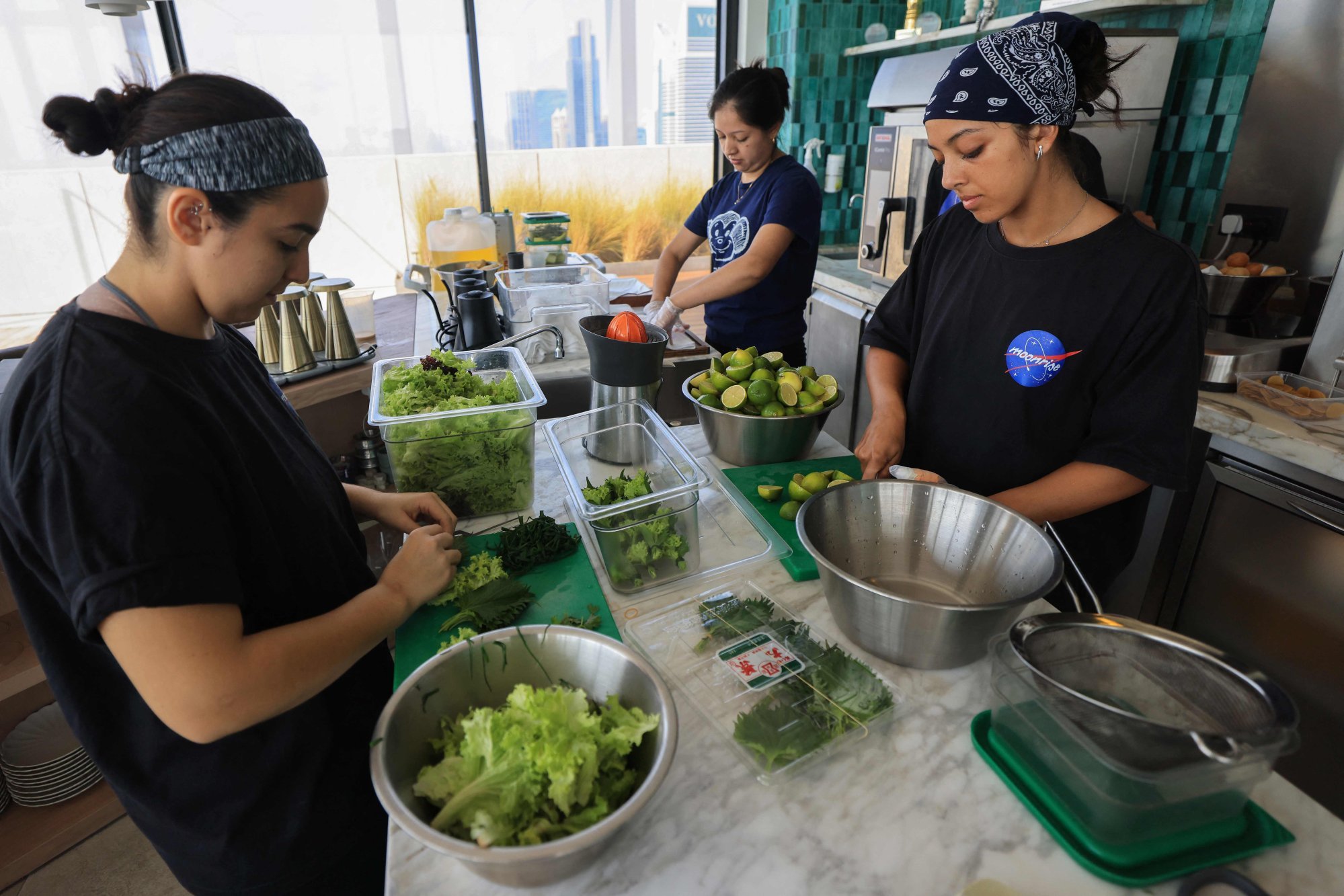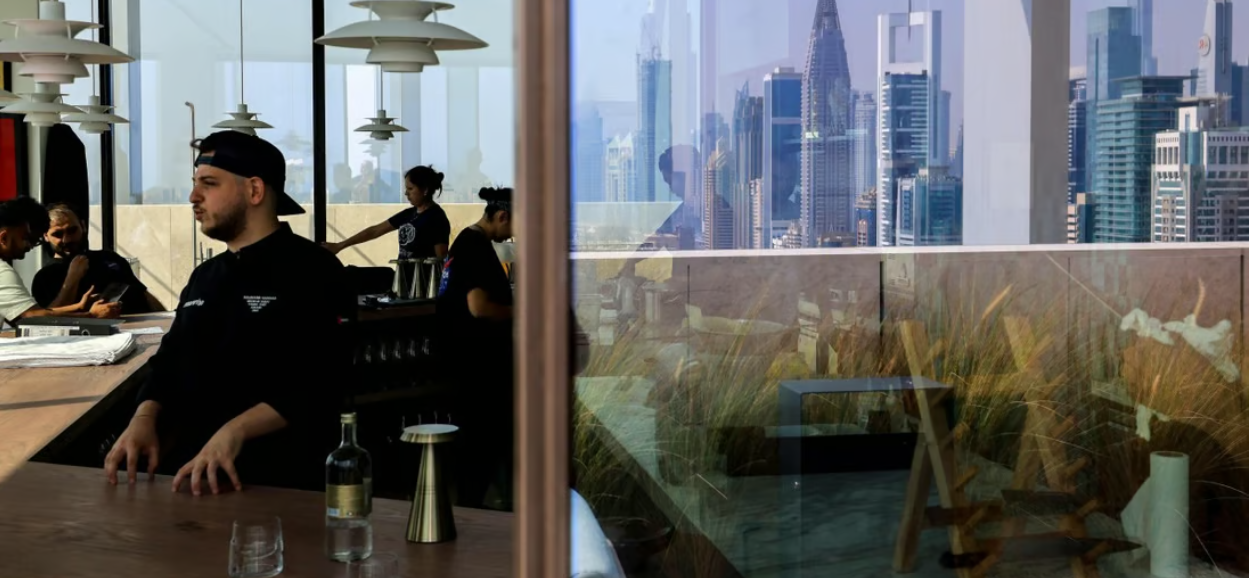Dubai is working to boost its fine-dining scene in an effort to enhance its reputation as a luxury city. It helped that it was the first location in the Middle East to have a Michelin Guide.
Gordon Ramsay and renowned French chefs have been drawn there, and today’s fusion cuisine served by creative home-grown chefs reflects the emirate’s global character.
Renaud Dutel, a French chef, never anticipated that his work would lead him to Dubai in the United Arab Emirates, but he has discovered a budding culinary mecca there.
Dutel is happy to have “taken the risk” five years after being offered and accepting a position at a posh restaurant in the Gulf financial and tourism powerhouse better known for its towers than its culinary scene.
At Stay, a Michelin-starred restaurant that specializes in French cuisine on the city’s iconic Palm Jumeirah man-made island, he says, “I think Dubai is at the start of its journey, but is on the way toward becoming one of the top places in the world to come to dine.
There are over 13,000 restaurants and cafes in Dubai, some of which are already well-known internationally.
The first Michelin stars in the Middle East were given to 11 Dubai restaurants in 2022, and this year more establishments will be entering the exclusive club.
Some, including Stay by Yannick Alléno, managed to earn two stars, but none reached Michelin’s top rating of three.
According to Issam Kazim of the local government’s tourism and business department, Dubai’s culinary scene has turned the city into one of the most varied and vibrant food centres in the world.
The UAE, a federation of seven emirates on the eastern coast of the Arabian Peninsula that has existed for five decades, does not have the same robust gastronomic history as other Arab nations.
Historical trade relations with modern-day Iran and India have a significant influence on the meat-heavy Emirati cuisine.
According to Loc Bienassis of the European Institute for the History and Culture of Food, it did not experience the “gastronomisation” that many Western culinary traditions underwent. But he adds that it “can be done”. “Political will can also be a factor.”
The city has developed a distinctive gastronomic identity due to the huge proportion of expats compared to the native Emirati population.
A good example is Moonrise, a rooftop restaurant with only 12 seats that serves a Middle Eastern-Japanese fusion menu.
The head chef and co-owner of Moonrise, Solemann Haddad, said the meal was “100% Dubai” yet had a third European, a third Japanese, and a third Arabic flavor.
At the age of 27, Haddad—who was born in the city to French and Syrian parents—earned a coveted Michelin star.
According to him, his dishes combine ingredients like date syrup with a chutney made of saffron and pineapple to capture the international character of Dubai.
Dubai, which has made a name for itself as a hub for commerce and luxury, is now luring some of the most renowned chefs in the world, including Alléno and fellow Frenchman Pierre Gagnaire.
Italian Massimo Bottura, British Gordon Ramsay, and Japanese Nobu Matsuhisa have all established restaurants in the city.
Dubai is cultivating local stars in addition to bringing in top talent, according to Emirati lawyer and food blogger Habib Al Mulla.
“A new, younger generation of home-grown chefs are coming up,” he claims. Many of them are gaining notoriety on a global scale.
In addition to chefs, restaurateurs like Omar Shihab, who was born in the UAE to a Jordanian family, are among Dubai’s rising culinary stars.
This year, the Boca restaurant he created received a Michelin Green Star for sustainability.

Shihab obtains the majority of his goods from the UAE, which is impressive considering that the nation imports more than 80% of its food.
Despite the fact that, “Let’s face it, we live in the desert,” he continues, “we prioritize local ingredients through our sourcing policy.”
According to Shihab, up to 80% of the fish served at Boca is derived from the UAE or adjacent coasts, and 30 to 40% of the fruit and vegetables are grown hydroponically by Emirati farmers.
For meat and chicken, he claims, “We do not have any local or regional suppliers,” but no matter where in the globe they are, “we make sure that the farms we depend on, we know their names, and we know a little bit about their practices.”

